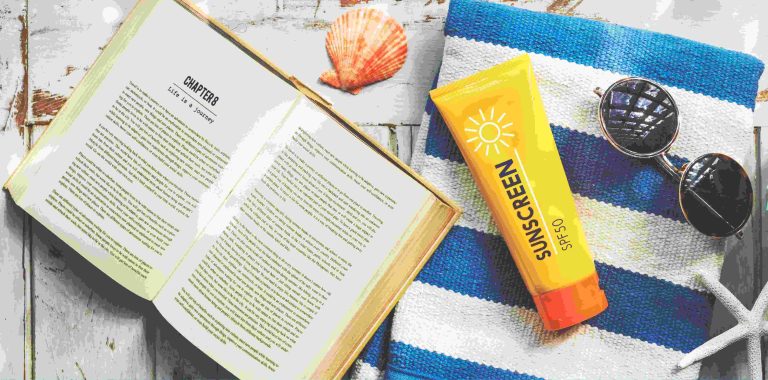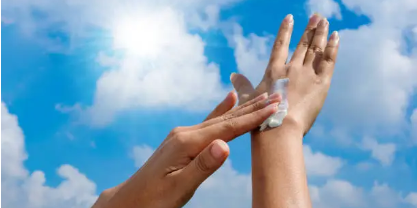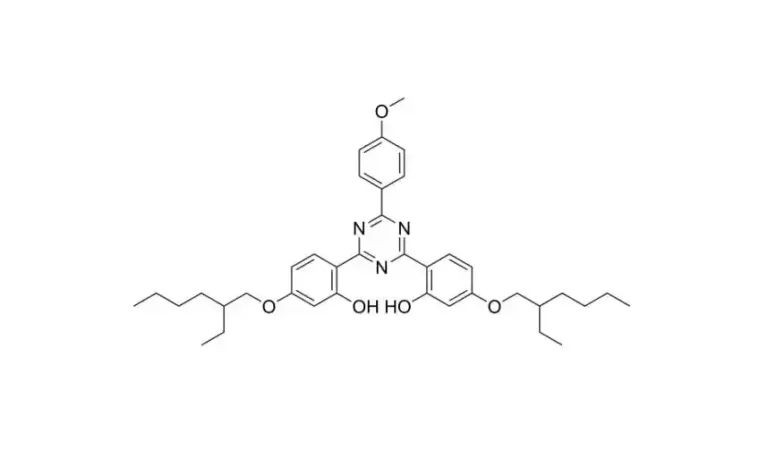여드름이 있지만 태양 보호가 필요합니까?당신은 유일한 사람이 아닙니다.여드름에 취향이 있는 피부를 가진 사람들은 종종 여드름이나 구孔을 여여여드름이나 구孔을 채우지 않고 유해한 UV 선을 차단하는 여여드름 보호제를 찾기 위해 고통스럽습니다.인사하세요 UV 광선을 흡수하여 덜 위험한 에너지로 변환하는 성분으로 기능합니다.Industry Knowledge Sharing – 페이지 4 –BFP
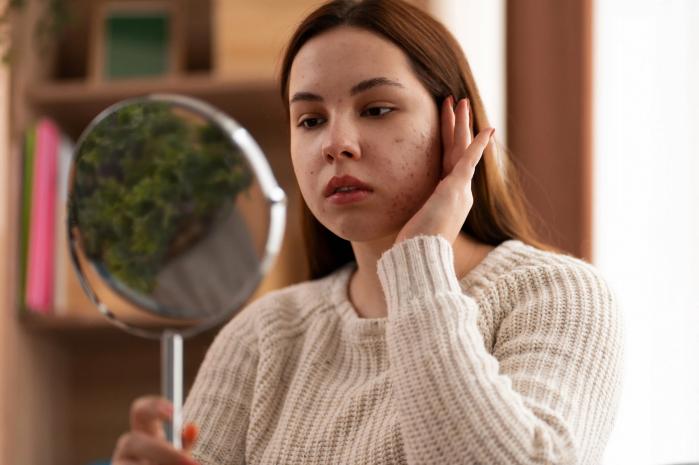
UV 방사선으로부터 매일 보호하기 위해 이산화 티타늄 태양 분말의 놀라운 이점을 알아보십시오!이 지구 친화적 인 광물은 유해한 방사선에 대한 강력한 방어를 제공합니다.그것은’모든 피부 유형에 충분히 부드럽습니다.그것이 어떻게 작동하는지, 그 이점, 그리고 왜 BFP’를 알아보십시오.S 제품은 우리의 가이드에서 스킨 케어 루틴에 완벽합니다.이산화 티타늄은 무엇입니까 […] Bisoctrizole 기반 선스크린 당신의 새로운 좋아하는 것입니다.그들은 빛, 비 comedogenic, and.keep 당신의 피부는 태양에 명확하고 안전합니다.
Bisoctrizole란 무엇이며 왜 BisBisBisoctrizole가 멋지나요?
Bisoctrizole, Tinosorb M로 알려져 있으며, 강력한 UV 필터입니다.UVA 및 UVB 선 모두를 중단합니다.또한 UV 빛을 반복하고 분산합니다.일반적인 화학 선스크린과는 달리 특별한 혼합물입니다.그것은 선스크린 공식의 물 부분에 작은 입자를 가지고 있습니다.이 멋진 디자인은 태양빛에서 정말 안정적입니다.빠르게 소모되지 않으므로 피부를 더 오래 안전하게 유지합니다.
여드름 경향이 있는 피부를 위해, UV 광선을 흡수하여 덜 위험한 에너지로 변환하는 성분으로 기능합니다. 놀라운그것은 거의 피부에 들어가지 않습니다.시험은 Bisoctrizole의 0.01%에서 0.06%만 인간 또는 시시시험을 보여줍니다.이것은 빨간색의 가능성이 적거나 막히는 구孔그것의 부드러운, 비 기름 질감은 매일 좋습니다.또한, 다른 UV 필터를 더 잘 만들기 때문에 선스크린이 더 열심히 작동합니다.
왜 선스크린은 여드름 경향이 있는 피부를 위해 힘들다
여드름에 취향한 피부는 매우 선택적입니다.두께, 기름이 많은 선스크린은 여드름을 더 악화시킬 수 있습니다.댓글:이산화 티타늄 선스크린 vs 산화 아연 : 알아야 할 주요 차이점 박테리아 성장많은 선스크린은 점착한 층을 남기고 있습니다.이것은 어려운 느낌이며 기름과 더러움을 이 더 많은 여드름으로 이어집니다.트릭은 A 찾는 것입니다. 여드름에 취향한 피부를 위한 선스크린 그것은 피부의 빛을 해치지 않고 잘 보호합니다.
Bisoctrizole는 이것을 해결합니다.그것의 비 comedogenic 특징은 그것이 구孔을 차단하지 않을 것이라는 것을 의미합니다.
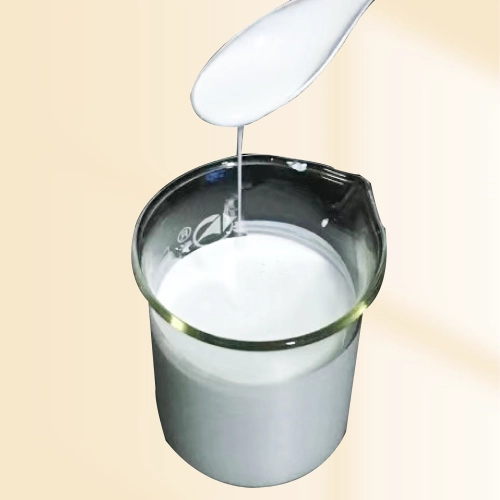
그것은 당신의 피부에 가끔히 앉아. 이것은 가득 차 있는 구孔의 위험을 줄입니다.또한, 여드름 제품에 사용되는 살리또또산과 같은 물건과 함께 좋은 재생합니다.이것은 태양 보호가 필요하면서 여드름과 싸우는 사람들에게 완벽합니다.
여드름 경향이 있는 피부가 특별한 사랑을 필요로하는 이유
- 막히는 구孔: 여분의 기름이나 무거운 물질은 모공에 더러움을 잡아 블랙헤드나 화이트헤드를 일으킬 수 있습니다.
- 박테리아 성장: 점착성 선스크린은 여드름 발생 미생물을 위한 편안한 집을 만듭니다.
- 산화 아연 자외선 차단제의 이점: 거친 UV 필터는 피부를 아프거나 빨강하게 만들어 여드름을 악화시킬 수 있습니다.
- 태양 해름: 태양광은 여드름 : 어두운 태태양 보호는 매우 중요합니다.
Bisoctrizole 기반 선스크린은 이러한 문제를 해결합니다.그들은 주는 오일 프리 선스크린 여드름 경향이 있는 피부를 방해하지 않는 선택.
비 Comedogenic Bisoctrizole 선스크린에 대한 좋은 것들
선택 a 여드름에 취향한 피부를 위한 선스크린 선택하는 의미 비 comedogenic 옵션.Bisoctrizole의 독특한 특징은 그것을 별으로 만듭니다.이것이 훌륭한 이유입니다:
금, 2025년 6월 20일 06:25:23 0000
댓글:이산화티타늄 선스크린은 방수? (당신이 알아야 할 것)
이산화 티타늄은 어떻게 유해한 UV 선으로부터 민감한 피부를 보호합니까?
Kommentare zu: 이산화 티타늄은 어떻게 민감한 피부를 유해한 UV 선으로부터 보호합니까?
Commenti a: 이산화 티타늄은 어떻게 유해한 UV 선으로부터 민감한 피부를 보호합니까?
살리실산과 같은 여드름 제품은 피부를 태양광에 민감하게 만들 수 있습니다.Bisoctrizole는 피부에 거의 침비비되지 않습니다.그것은 안전하고 여드름 싸움 물건과 혼란하지 않습니다.이것은 보호를 유지하면서 피부 관리 계획을 따라갈 수 있습니다.
이산화티탄 선스크린의 환경 영향: 당신이 알아야 할 것
Bisoctrizole의 작은 입자 디자인은 피부 위에 남아 있습니다.이것은 가능성을 줄여줍니다. 막히는 구孔Comments on: 이산화티타늄 선스크린의 환경 영향: 당신이 알아야 할 것
Commenti a: 이산화 티타늄 선스크린은 방수? (당신이 알아야 할 것)
이산화 티타늄 선스크린 분말: 매일 사용을위한 주요 사실 오일 프리 선스크린 Titanium Dioxide Sunscreen Powder : 일상 사용을 위한 주요 사실
| 이산화 티타늄은 어떻게 민감한 피부를 유해한 UV 선으로부터 보호합니까? | Comments on: 이산화 티타늄 선스크린 분말: 매일 사용을위한 주요 사실 |
| Comentarios en: 이산화 티타늄 선스크린은 방수? (당신이 알아야 할 것) | 라벨에 "non-comedogenic"을 확인하십시오.그것은 포어를 막지 않을 것이라는 것을 의미합니다. |
| 오일 프리 공식 | 선스크린은 더 이상 여름만이 아닙니다.그것은 매일 필요한 것입니다.사람들은 지금 피부 건강과 UV 보호에 더 관심을 갖고 있습니다.그들은 안전하고 녹색 선택을 원합니다.그래서 미네럴 선스크린, 특히 이산화 티타이이이이이이이이이이이산화 티타이이이이이이이산화 티타이이이탄이 점점점점 인기가 높아지고 있습니다.이 블로그는 이산화티타늄 이 선스크린 트렌드를 살펴보고 있습니다.이것은 브랜드가 이 성분을 사랑하는 이유를 보여줍니다.우리는 또한 그것을 사용하는 새로운 방법과 광물 UV 필터 공급 업체가 선스크린 세계를 어떻게 형성하는지 탐구할 것입니다.광산 선스크린이 성장하는 이유 선스크린의 세계는 빠르게 변화하고 있습니다.사람들은 미네럴 기반 제품을 그 어느 때보다 더 원합니다.화학적 선스크린에 대해 걱정합니다.이것은 피부를 자극하거나 환경을 손상시킬 수 있습니다.천연 광물인 이산화 티타늄은 최고의 선택입니다.그것은 […] |
| 아기의 부드러운 피부를 태양에서 안전하게 유지하는 것은 매우 중요합니다.모든 선스크린이 어린이에게 좋은 것은 아닙니다.아이들을 돌보는 의사들은 종종 이산화 티타아아아아아아기와 어린이들에게 좋은 선택이라고 말합니다.많은 선택권을 가지고 있으면 최고의 선택권을 찾는 것이 어려울 수 있습니다.이 가이드는 […]를 표시합니다. | Bisoctrizole와 같은 최고 품질의 UV 필터가 필요한 선스크린 브랜드를 운영하는 사진을 보세요.부족한 재료나 배송 지연과 같은 공급망 문제는 계획을 혼란스럽게 하고 고객을 불안하게 할 수 있습니다.신뢰할 수 있는 Bisoctrizole 공급 업체를 찾는 브랜드에게 2024, BFP는 강한 선택입니다.그들은 그들의 큰 공장과 스마트 배송을 […] |
| 추가 물건 | 여드름 싸움 도움을 위해 살리실산 또는 니아시나미드를 가진 선스크린을 찾으십시오. |
| : 철저한 태양 안전을 요구합니다. | 빛, 젤, 또는 물이 불불점착한 느낌을 얻을 수 없는 불점착한 느낌을 위해 불불불불불불점점착성을 얻으십시오. |
Bisoctrizole 선스크린을 찾는 팁
다음은 확인해야 할 것들입니다:
- 빛 느낌: 젤 또는 물 : : : : : : 그들은 신속하게 그들그들그들은 그들그들그들은 그들그들그들은 그들그들은 그들그들그들은 그들그들은 그들그들은 빠르게 그들그들은 그들그들은 그들은 그들은 그들은 그들은 그들은
- 댓글:Bisoctrizole 공급망 위험?BFP가 신뢰할 수 있는 배달을 보장하는 방법댓글:산화 아연 vs. 이산화 티타늄: 어느 것이 더 좋습니까?
- .금, 2025년 6월 20일 06:20:07 0000
- 오래 지속되는 제품의 안정성댓글:아기를 위한 이산화 티타늄 선스크린: 소아 의사가 승인한 선택
댓글:선스크린의 미래 : 브랜드가 이산화 티타늄을 선택하는 이유 코멘트: 산화 아연 vs. 이산화 티타늄: 어느 것이 더 나은 것인가?.
Kommentare zu: 산화 아연 vs. 이산화 티타이이이움: 어느 것이 더 나은 것인가?
The Future of Sunscreen: Why Brands Are Choosing Titanium Dioxide 에 코멘트 UV 광선을 흡수하여 덜 위험한 에너지로 변환하는 성분으로 기능합니다. 의견: 선스크린의 미래: 왜 브랜드가 이산화 티타늄을 선택하고 있습니다 BFP는 Bisoctrizole 및 그 재료를 손에 보관합니다.이것은 수요가 점프하거나 문제가 발생할 때 부족을 중단합니다.그것은 그들의 공급을 안정적으로 유지하고, 그들을 신뢰할 수 있는 Bisoctrizole 공급 업체 2024.코멘트 : 이산화 티타늄 선스크린 대 산화 아연 : 알아야 할 주요 차이점 BFP는 Bisoctrizole 및 그 재료를 손에 보관합니다.이것은 수요가 점프하거나 문제가 발생할 때 부족을 중단합니다.그것은 그들의 공급을 안정적으로 유지하고, 그들을 신뢰할 수 있는 Bisoctrizole 공급 업체 2024. 코멘트: 이산화 티타늄 선스크린 vs. 산화 아연: 알아야 할 주요 차이점 상하이 BFP 그래요Bisoctrizole는 암초 안전하고 녹색 선스크린에서 작동합니다.지구친화적인 제품에 대한 수요를 충족시키고 UVA 및 UVB 선을 차단합니다.
의견 : 선스크린의 미래 : 브랜드가 이산화 티타늄을 선택하는 이유
Titanium Dioxide Sunscreen for Babies: Pediatrician-Approved Picks (아기용 이산화티탄 선스크린: 소아의사 승인 선택) 여드름에 취향한 피부를 위한 선스크린 목요일, 2025년 6월 12일 05:46:04 0000
이산화티탄 선스크린은 안전합니까?Is Titanium Dioxide Sunscreen Safe?신화 vs 과학적 사실
- Kommentare zu: 아기를 위한 이산화 티타늄 선스크린: 소아의사 승인 선택에 대한 의견: Bisoctrizole 공급망 위험?BFP가 신뢰할 수 있는 배달을 보장하는 방법
- 태양광 스크린의 미래: 브랜드가 이산화 티타늄을 선택하는 이유Comentarios en: 이산화 티타늄 선스크린은 안전합니까?신화 vs 과학적 사실
- 에 대한 의견: Terephthalylidene dicamphor sulfonic acid/ BFP-SP TDSA아기의 부드러운 피부를 태양에서 안전하게 유지하는 것은 매우 중요합니다.모든 선스크린이 어린이에게 좋은 것은 아닙니다.아이들을 돌보는 의사들은 종종 이산화 티타아아아아아아기와 어린이들에게 좋은 선택이라고 말합니다.많은 선택권을 가지고 있으면 최고의 선택권을 찾는 것이 어려울 수 있습니다.이 가이드는 이산화티타늄이 아기에게 훌륭한 이유, 선스크린에서 찾아야 할 것, 그리고 의사가 신뢰하는 제품을 보여줍니다.왜 이산화티탄 선스크린이 아기에게 좋은 이유 아기는 성인 피부보다 태양에 의해 더 쉽게 상처받는 매우 부드럽고 태태태양이 태태태태양이 태태태태양에 의해 더 쉽게 손상을 입을 수 있는 매우 이산화티탄 태이산화티타늄 (TiO)₂) 자연적인 선스크린 성분입니다.그것은 […]에 앉아 있습니다.
- Bisoctrizole와 같은 최고 품질의 UV 필터가 필요한 선스크린 브랜드를 운영하는 사진을 보세요.부족한 재료나 배송 지연과 같은 공급망 문제는 계획을 혼란스럽게 하고 고객을 불안하게 할 수 있습니다.신뢰할 수 있는 Bisoctrizole 공급 업체를 찾는 브랜드에게 2024, BFP는 강한 선택입니다.그들은 중국의 대규모 공장과 스마트 배송을 사용하여 BFP 대량 주문 배달을 길에 유지합니다.이 블로그는 Bisoctrizole 공급을 손상시킬 수 있는 위험과 BFP의 UV 필터 공급망 솔루션이 구매자에게 부드러운 상황을 유지하는 방법을 살펴보습니다.Bisoctrizole는 무엇이며 왜 태양 보호제에 대한 열쇠 Bisoctrizole, Tinosorb M이라고도 불리며, UVA와 […]를 차단하는 훌륭한 UV 필터입니다.BFP의 Bisoctrizole가 글로벌 선스크린 규정 (EU, FDA, ASEAN) 준수를 보장하는 방법
1 비즈니스 팀 글로벌 비즈니스 계획 작업 개념
- Bisoctrizole Supply Chain Risks? How BFP Guarantees Reliable Delivery 에 코멘트Titanium Dioxide Sunscreen for Babies: Pediatrician-Approved Picks 에 코멘트
- 전세계적으로 선스크린을 판매하는 것은 어려운 퍼즐을 통해 걸어가는 것처럼 느끼실 수 있습니다.모든 나라는 자신만의 규칙을 가지고 있으며, 모든 규칙을 준수하는 것은 어렵습니다.하지만BFP의 Bisoctrizole (BFP-SP-M) 막히는 구孔.
- 쉽게 만든다.그것은 EU, 미국 및 ASEAN 국가와 같은 장소에서 엄격한 규칙을 따르는 최고 수준의 UV 필터입니다.이 블로그는 BFP의 BFP-SP-M 규제 지원이 브랜드가 EU 준수 UV 필터를 사용하여 세계적으로 자신감을 가지고 제품을 판매하는 데 도움이 되는 방법을 보여줍니다.Bisoctrizole란 무엇이며 왜 규칙에 도움이 됩니다
Bisoctrizole, Tinosorb M이라고도 불리며, UVA와 UVB 광선을 차단하는 강력한 UV 필터입니다.그것은 유기물과 무기물의 혼합입니다.그것은 흡수되고 다시 반그것그것그것은 피부를 잘 보호하기 위해 태양광을 그것그것은 그것그것을 그것그것은 그것그것은 그것은 그것은 그것을 그것을 그것은 그것은 그것그것은 그것그것그것을 그것그것그것을게다가, 태양 빛 아래에서 강하게 유지되므로 오랫동안 작동합니다.그것은 가로운 느낌이며 피부를 방해하지 않으며 사람들은 매일 선스크린을 좋아합니다.Bisoctrizole는 유럽과 아시아와 같은 장소에서 허용되어 있으므로 안전하고 고품질의 제품을 원하는 브랜드에게 좋은 선택입니다.
Bisoctrizole가 멋진 이유는 다음과 같습니다:
태양광에서 분해되지 않으므로 더 오래 보호합니다. 비 comedogenic피부에 많이 흡수하지 않으므로 민감한 피부에 안전합니다.
많은 제품에 적합합니다
: 크림, 스프레이 또는 : 크크크림, 크크크림, 스프레이 또는 크크림에서 작동하여 브랜드 선택권을 제공합니다.
브랜드에게는 Bisoctrizole와 같은 EU 준수 UV 필터를 사용하는 것은 규칙을 따르고 제품을 잘 작동시키는 데 중요합니다.BFP의 노우 하우는 Bisoctrizole (BFP-SP-M)가 글로벌 표준을 충족시키고 브랜드가 규칙 문제를 해결하는 데 도움이 됩니다.
전 세계 선스크린 성분 규칙 오일 프리 선스크린 선스크린 규칙은 모든 곳에서 다릅니다.
그것은 세계적으로 판매를 어려워합니다.EU 준수 UV 필터, FDA 표준 및 ASEAN 요구 사항에 대한 주요 규칙 및 Bisoctrizole가 어떻게 적합하는지 살펴보자.
EU 규칙: UV 필터에 대한 엄격한 표준
유럽에서 선스크린은 규정 (EC) 1223/2009라는 규칙에 따라 화장품으로 취급됩니다.Methylene Bis-Benzotriazolyl Tetramethylbutylphenol (MBBT)로 나열된 Bisoctrizole는 화장품에서 최대 10%까지 허용됩니다.소비자 안전에 대한 과학위원회 (SCCS)라는 그룹은 피부에 대한 안전하다고 말합니다. 손상이 있더라도, 매우 순수한 (98.5% 이상)이며 작은 나노 형태의 경우 적절한 입자 크기가 있습니다.
BFP의 Bisoctrizole (BFP-SP-M)는 이러한 규칙을 따릅니다.그들은 품질을 신중하게 확인하고 EU 준수 UV 필터를 확인하기 위해 완전한 서류를 제공합니다. Bisoctrizole 기반 선스크린 FDA 규칙: 까다로운 미국 표준 막히는 구孔미국에서는 선스크린은 화장품이 아니라 약으로 간주되므로 FDA가 통제합니다.현재 FDA가 승인한 Bisoctrizole는 FDA가 아직 선스크린을 확인하지 않았기 때문에 문제가 아닙니다.그들은 안전성과 그것이 어떻게 작동하는지에 대한 많은 테스트가 필요합니다.하지만 Bisoctrizole는 미국 화장품에서 좋습니다. 데이 크림과 같습니다.BFP는 미래에 FDA 승인 된 Bisoctrizole를 기다리면서 미국에서 Bisoctrizole를 사용하는 안전 정보와 팁을 제공함으로써 브랜드를 도와줍니다. 비 comedogenic 아세안 규칙: 비슷하지만 다르다 상하이 BFP싱가포르와 태국과 같은 아세안 국가들은 유럽과 가까운 규칙을 가지고 있습니다.그들은 Bisoctrizole 최대 10 %를 허용합니다.그러나 일부 국가는 특별한 라벨이나 테스트와 같은 추가 규칙을 추가합니다.BFP의 BFP-SP-M 규제 지원은 브랜드에게 이러한 규칙을 충족시킬 수 있는 적절한 서류를 제공하여 ASEAN에서 판매를 쉽게 합니다.

